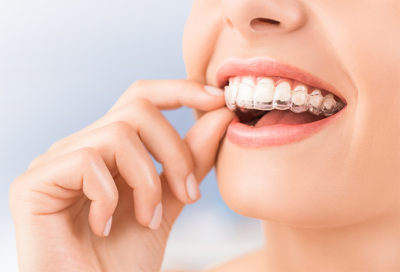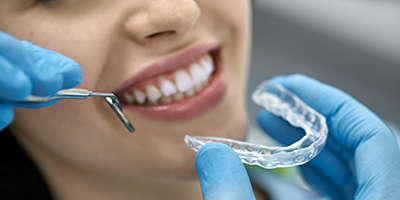Most TMJ treatments are dental in nature. As such, they’re covered by your dental insurance benefits. For example, we might recommend a bite splint because you’re grinding your teeth, which is causing your jaw pain. Bite splints are dental appliances made in our dental office, rather than prescribed by a medical doctor. Since they’re fitted and delivered by a dentist, your medical insurance doesn’t usually cover them.
On the other hand, if you have some type of degenerative issue going on inside of your jaw joint, you might require oral surgery to treat it. Since that’s a procedure only an oral surgeon can perform, both your medical and dental benefits should overlap to cover the necessary procedure.
To get a general idea of the costs related to treating TMJ, we encourage you to seek a consultation with our Calgary dentist. From there we’ll determine the likely causes and options available to correct them. At that time, you’ll have a better idea as to whether your treatment falls under medical or dental.
If for any reason these measures are not effective or do not offer TMJ pain relief, then we may recommend oral surgery on the joint. One example of when surgery is needed is if there are structural irregularities inside of the TMJ itself, which we can see on a CT scan or X-ray.
Deciding to get oral surgery for TMJ needs to be a well-thought-out process and requires lengthy recovery time. In most cases, a team of dental providers or surgeons will evaluate your jaw to determine the best type of surgery and create a care plan for you to review. Surgery is usually one of the last recommended treatment options for TMD, and only when there’s severe discomfort or the condition interferes with your daily quality of life.





